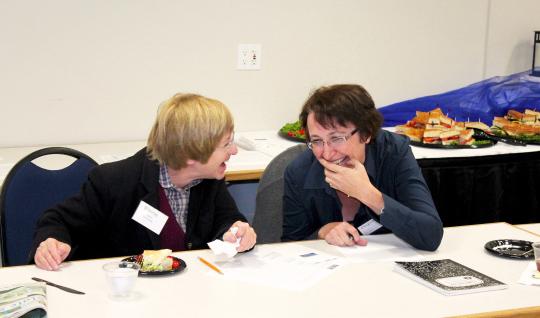Tips & Trends in Service-Learning IV
"You know (service-learning) works," says Elaine Wellin from the Department of Sociology at Sonoma State University, "because the students will say, 'I'm going to keep going after the term.'"
Wellin, among many other faculty and staff from Sonoma State University and other institutions, convened for the latest annual Tips and Trends in Service-Learning workshop. Merith Weisman, community engagement and social media coordinator at SSU, led the exciting two-hour workshop.
Through lively group discussions, the attendees learned about service-learning pedagogies, community relationship building, and current trends in academic planning.
One such discussion was about the importance of guided reflection activities. Guiding the students as they reflect on their work encourages them to make connections between the service experience and the academic and civic learning goals of the course.
Jeffrey Reeder from the Department of Modern Languages and Literatures at SSU recalls an experience with a past college roommate who lacked the proper cognitive guidance, damaging his experience rather than helping him.
"By the second or third day, I discovered that he was probably one of the most bigoted and closed-minded people I had ever met," says Reeder. "And he had been exposed to the world."
When carefully implemented into a course, service-learning is powerfully transformative; inspiring students to a lifetime commitment to civic engagement, and establishing long-term reciprocal community partnerships.
"(As a student) you can be swept up by massive events that are so much larger than you," explains Margie Purser from the Department of Anthropology at SSU.

Author: Aaron Robinson



